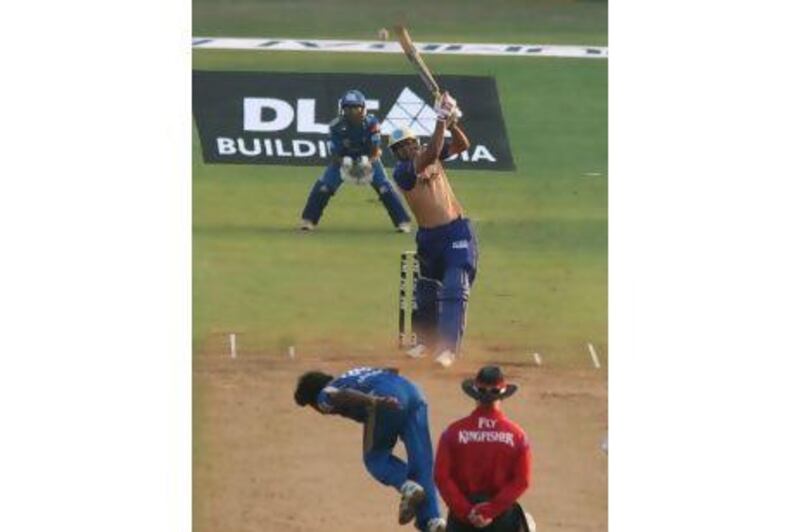And there was me thinking England had achieved something enduring and magnificent by winning The Ashes on Australian soil for the first time in 24 years.
It did not even survive the week. England's Twenty20 world champions-come-Ashes victors were put firmly back into their boxes as they became the great unloved at the Indian Premier League (IPL) auction.
Last week presented the great dichotomy of modern cricket in sharp relief. The post-celebration Alka-Seltzer was still plink-plink-fizzing when England's players became aware that they are still less appealing to India's money men than the same players they had just thrashed in The Ashes.
In the auction for the 2011 edition of the Indian 20-over league, just over US $2million (Dh7.35m) was spent on English players, compared to nearly $12m on Australians. However, it is the same money-driven T20 revolution that has been widely fingered as the main reason behind Australia's decline as a Test force.
Is it possible for the two to coexist? Can players preen-off the cash offered by an autonomous 20-over league and still be a force in the Test game? Or do they now have to make a choice between substantial short-term gain and everlasting glory?
When Gideon Haigh, the learned cricket writer, considered the question: "Does cricket make money to exist, or does it exist to make money?" he concluded that history makes a case for a bit of both.
If the same question was asked of the modern player - do they play cricket to make money or make money because they play cricket? - the answer is probably: it depends.
Some, clearly, are just better suited to the Test game. Alastair Cook is a good example. To date, the England opener has hit six sixes in the 95 matches he has played across the three formats of international cricket.
Such a less-than-lustrous haul will never catch the eye of the IPL's cash-rich owners. Yusuf Pathan, by contrast, has racked up nearly 100 sixes in T20 cricket. He has yet to play a Test match.
So, while Pathan was preparing to bank a cheque worth $2.1m, Cook had to be content with being talked of among the greats of the game such as Wally Hammond for his Ashes exploits. Apparently, talk is cheap.
When the T20 boom first took hold in India, it was suggested the players who would command the biggest salaries would still be those who first made their names by excelling in the international sphere.
It seems a quaint idea now, when considering Pathan's enviable bank balance is so far out of kilter with his international standing.
David Hussey is another example. He is not even certain of a place in Australia's World Cup squad next month, yet commanded a price of $1.4m in the IPL cattle-market.
So what is the effect on the Test game? As much as anything else, England's cricketers are a less attractive proposition to IPL owners due to a clash in scheduling with the English domestic season.
As such, the international cricket calendar is doing England a huge favour. Their players may be less well-heeled, but the national team is in rude health as a consequence of missing out on the T20 goldrush.
By contrast, Australia's decline in the five-day format has been hastened because of the influence of T20, in the form of both the IPL and their own KFC Big Bash, on their Kentucky Fried domestic game. With such lavish rewards on offer in T20, why would an emerging Australian cricketer - such as Daniel Christian, for example - need or want to push himself to play Test cricket for a struggling side?
Christian, a big-hitting all-rounder from Sydney, was bought by the IPL's Deccan Chargers for $900,000. He has yet to play Test or one-day international cricket for Australia.
Almost simultaneously, England's batsmen made a mockery of his fee. While playing for the Prime Minister's XI against the English last week, Christian leaked 66 runs in 6.3 overs. While he was going at more than 10 runs per over, his teammates were going at about six.
On a trip to his native Perth last month to take in the one Ashes Test the hosts managed to win, Rod Marsh, the great Australian wicketkeeper, assessed the problem.
He predicted that, in 20 years time, no-one will have heard of Shaun Tait, the South Australian fast bowler whom Marsh himself helped rear during his stint in charge of the state's cricket academy.
Perhaps not. But in the intervening time, Tait will be able to console himself with counting all the money he has made as a darling of the Twenty20 generation. Who is to say he is wrong?






